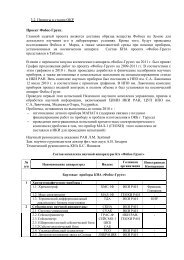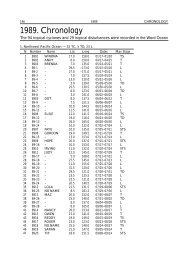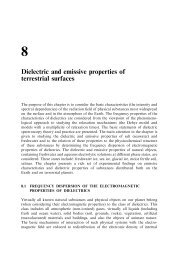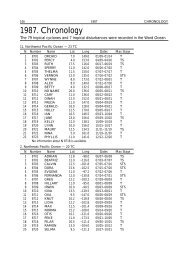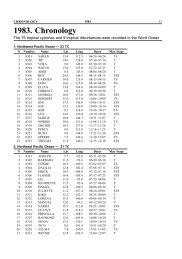Программа и тезисы докладов - Институт космических ...
Программа и тезисы докладов - Институт космических ...
Программа и тезисы докладов - Институт космических ...
You also want an ePaper? Increase the reach of your titles
YUMPU automatically turns print PDFs into web optimized ePapers that Google loves.
ScienTiFic daTa TranSMiSSion by “chibiS-M”<br />
V. M. Gotlib, V. N. Karedin<br />
Space Research Institute of Russian Academy of Sciences (IKI RAN), Moscow, Russia<br />
Micro-satellite “Chibis-M” is intended for investigating the activity of lightning<br />
discharges from circumterrestrial orbit on the evidence of their emission within<br />
radio, gamma and UV band as well as in the optical band. According to estimations,<br />
the set of scientific data for one recorded event from radiofrequency, gamma<br />
and UV detector and a camera averages 10 Mbyte. The number of detected events<br />
per a turn can vary from 1 to 3 that will give almost 300 Mbit of information. On<br />
the average length of the communication session in low orbit the required speed of<br />
transmission will be 1 Mbit/s. Thus, the basic requirements are as follows: the radio<br />
channel of scientific data transmission must provide the delivery of digital information<br />
to the Earth at a speed of up to 1 Mbit/s and at a distance of up to 2500 km. For<br />
this reason a radio transmitter S and an antenna are set on board of the spacecraft.<br />
The transmitter antenna has a wide radiation pattern directed to the Earth since one<br />
of the spacecraft axes is oriented towards the Earth. The choice of S range of the radio<br />
channel rests on the fact that it is basically meant for data transmission from the<br />
space and provides the necessary frequency band and transmission speed. The work<br />
minutely examines the construction of the scientific data transmission channel.<br />
The SpeciFiciTy oF “chibiS M” elaboraTion, producTion<br />
and TerreSTrial TeSTS<br />
L. D. Belyakova, V. N. Angarov, V. G. Rodin, M. B. Dobriyan,<br />
S. I. Klimov, V. M. Kozlov, A. V. Kalyuzhny<br />
Space Research Institute of Russian Academy of Sciences (IKI RAN), Moscow, Russia<br />
The micro-satellite (MS) acceptance tests are performed for the purpose of<br />
checking technical, structural and operational characteristics of the MS and the<br />
transport-launching container and the confirmation of their compliance with the<br />
requirements of construction law and technical conditions in accordance with the<br />
list of documents presented in “Acceptance tests program and technique”. The acceptance<br />
tests were conducted on the basis of Space Research Institute of RAS and<br />
Special Design Office of Space Instrument Making of Space Research Institute,<br />
which are equipped with all the necessary measurement and test devices.<br />
19



